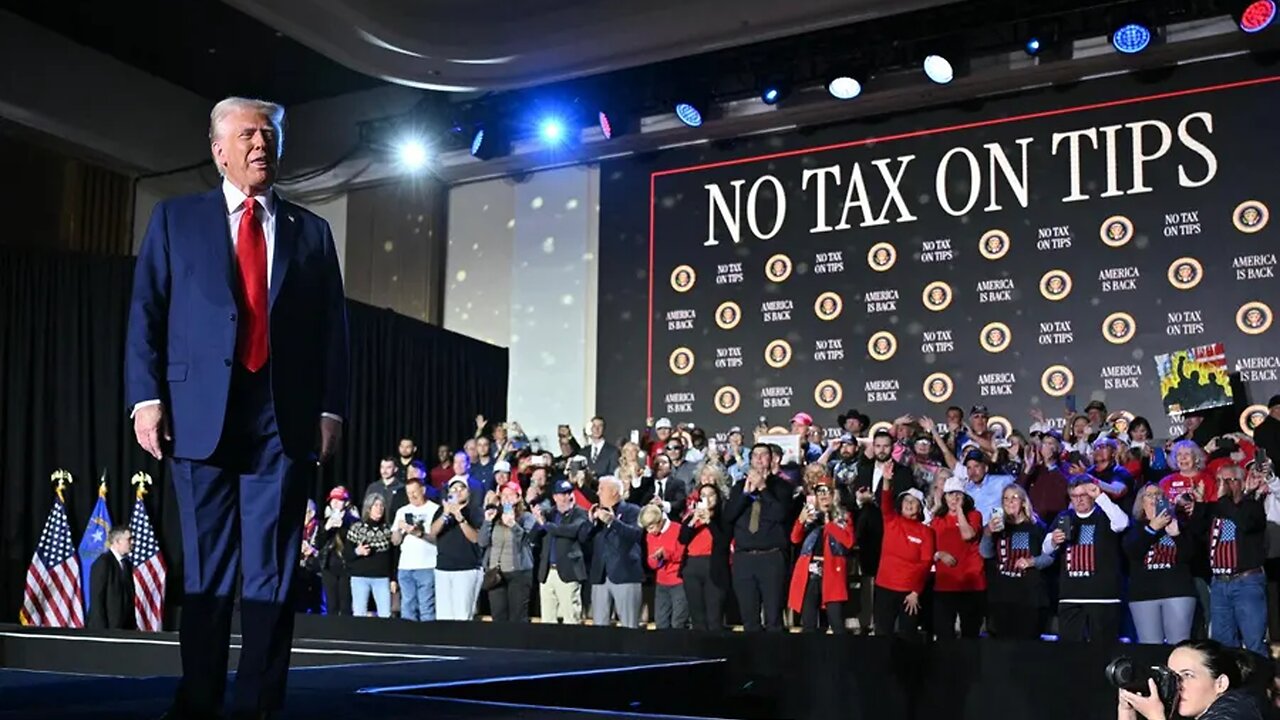Premium Only Content

No Tax on Tips Act Passed by Senate | What It Means for Service Workers | NEWSDRIFT
So, what does the No Tax on Tips Act actually do?
First, it allows workers in traditionally tipped jobs to deduct up to twenty-five thousand dollars in tips from their taxable income. That means if you're a server, bartender, hairdresser, or work in any other tipped position, you could keep more of what you earn—up to twenty-five thousand dollars of your tips would not be taxed.
However, there are limits. If you earned more than one hundred sixty thousand dollars in the previous tax year, you won’t be eligible for the deduction. This ensures that the tax break is focused on lower and middle-income workers who rely on tips as a major part of their income.
The bill also offers expanded benefits to employers. It broadens the existing business tax credit for employers who pay payroll taxes on tips. Previously, this benefit was mostly limited to the food and beverage industry. Now, it includes beauty services such as barbering, hair care, nail salons, esthetics, and spa treatments. This change could encourage more employers in these sectors to properly report tips and support their workers’ earnings.
Supporters of the bill argue that the No Tax on Tips Act fulfills a long-standing promise made by former President Donald Trump during his recent campaign. It's a move that resonates with many Americans who feel the tax code hasn’t fairly treated service workers. For years, tipped employees have had to track and report every dollar they receive in cash or digitally—only to be taxed on that income, even when it’s irregular and hard to document.
Democrats who supported the bill, especially those from states with strong tourism and service sectors, view it as a way to provide real financial relief to working-class Americans. Senator Jacky Rosen emphasized that this legislation should not be tied to controversial proposals like cuts to Medicaid or food assistance programs. She made it clear this should be a standalone effort to support workers, not part of a broader political agenda.
But while the bill sailed through the Senate, its future in the House of Representatives is uncertain. House Republicans have included a version of the No Tax on Tips Act in a much larger tax and spending bill called the One Big Beautiful Bill Act. However, that larger package includes a number of unrelated and politically divisive measures. Democrats have expressed opposition to the broader bill, even though they support the core idea of ending taxes on tips.
The Congressional Budget Office has not yet released an official cost estimate for the Senate version of the No Tax on Tips Act. But the version included in the House’s package, which would only be temporary, is projected to cost about forty billion dollars over four years. That’s a significant price tag, and it may become a key point of debate as the bill moves forward.
Still, the overwhelming support in the Senate is a sign that the idea of no tax on tips has strong momentum. For millions of waiters, bartenders, barbers, and beauty professionals across the country, this legislation could mean more money in their pockets and less red tape during tax season.
The No Tax on Tips Act now heads to the House, where its fate will be decided in the coming weeks. Whether it remains a standalone bill or gets wrapped into a larger package, one thing is clear: the debate over taxing tips is far from over.
Stay tuned as we continue to follow this developing story. The next few weeks could determine whether the No Tax on Tips Act becomes the law of the land—or just another promise left on the table.
-
 1:46:14
1:46:14
LIVE WITH CHRIS'WORLD
11 hours agoTHE WAKE UP CALL - 11/26/2025 - Episode 14
8.86K2 -
 2:16:19
2:16:19
The Bold Lib
14 hours agoBOLDCHAT: Trump Pardons | DOGE | Patel w/ANGELA BELCAMINO
11.1K6 -
 47:14
47:14
Brad Owen Poker
23 hours ago $1.70 earnedI Have STRAIGHT FLUSH vs Flopped NUTS!! ALL IN w GOLD BRACELET LEGEND!! $15,000+! Poker Vlog EP 358
9.6K -
 36:11
36:11
Uncommon Sense In Current Times
18 hours ago $2.04 earnedThe Truth About the Abortion Pill | Sue Liebel Exposes FDA Failures & Hidden Dangers
20.8K2 -
 2:05:12
2:05:12
BEK TV
1 day agoTrent Loos in the Morning - 11/26/2025
12.1K -
 6:30
6:30
The Shannon Joy Show
14 hours agoMTG DIVORCES Herself From Trump & the MAGA Movement
13.2K25 -
 LIVE
LIVE
The Bubba Army
23 hours agoJELLY ROLL'S WIFE GOING TO JAIL! - Bubba the Love Sponge® Show | 11/26/25
1,176 watching -
 14:17
14:17
Actual Justice Warrior
16 hours agoBlack Man CRIES Victim After Welfare Gets Cut
26.2K26 -
 23:51
23:51
Code Blue Cam
23 hours agoDrunk Man Goes to War on Cops After Being Denied More Alcohol
24.4K18 -
 1:03:23
1:03:23
Coin Stories with Natalie Brunell
20 hours agoFinding the Next 100x Investment with Eric Jackson
19.3K3